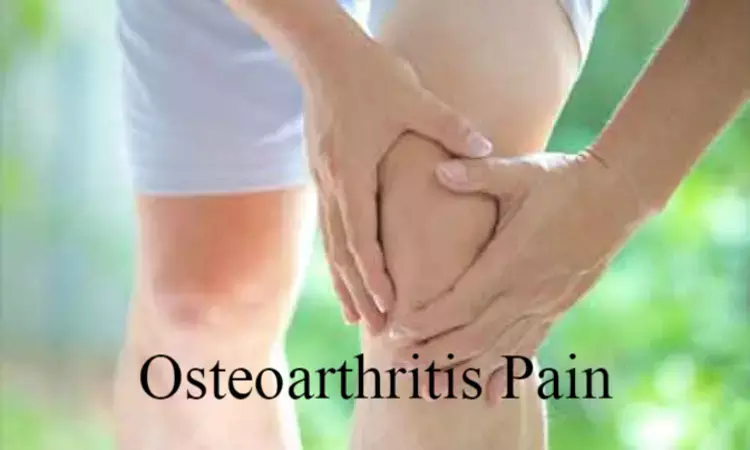- Home
- Medical news & Guidelines
- Anesthesiology
- Cardiology and CTVS
- Critical Care
- Dentistry
- Dermatology
- Diabetes and Endocrinology
- ENT
- Gastroenterology
- Medicine
- Nephrology
- Neurology
- Obstretics-Gynaecology
- Oncology
- Ophthalmology
- Orthopaedics
- Pediatrics-Neonatology
- Psychiatry
- Pulmonology
- Radiology
- Surgery
- Urology
- Laboratory Medicine
- Diet
- Nursing
- Paramedical
- Physiotherapy
- Health news
- Fact Check
- Bone Health Fact Check
- Brain Health Fact Check
- Cancer Related Fact Check
- Child Care Fact Check
- Dental and oral health fact check
- Diabetes and metabolic health fact check
- Diet and Nutrition Fact Check
- Eye and ENT Care Fact Check
- Fitness fact check
- Gut health fact check
- Heart health fact check
- Kidney health fact check
- Medical education fact check
- Men's health fact check
- Respiratory fact check
- Skin and hair care fact check
- Vaccine and Immunization fact check
- Women's health fact check
- AYUSH
- State News
- Andaman and Nicobar Islands
- Andhra Pradesh
- Arunachal Pradesh
- Assam
- Bihar
- Chandigarh
- Chattisgarh
- Dadra and Nagar Haveli
- Daman and Diu
- Delhi
- Goa
- Gujarat
- Haryana
- Himachal Pradesh
- Jammu & Kashmir
- Jharkhand
- Karnataka
- Kerala
- Ladakh
- Lakshadweep
- Madhya Pradesh
- Maharashtra
- Manipur
- Meghalaya
- Mizoram
- Nagaland
- Odisha
- Puducherry
- Punjab
- Rajasthan
- Sikkim
- Tamil Nadu
- Telangana
- Tripura
- Uttar Pradesh
- Uttrakhand
- West Bengal
- Medical Education
- Industry
Non-surgical treatment quickly reduces arthritis knee pain and improves function

FAIRFAX, Va. - A non-surgical treatment for arthritis in the knee is safe and effective in providing immediate and long-term pain relief, according to a new study to be presented at the Society of Interventional Radiology Annual Scientific Meeting. Genicular artery embolization (GAE) reduces inflammation in the knee to improve function and quality of life for people with moderate to severe knee pain. Osteoarthritis is one of most common causes of disability, limiting daily activities of 40% of all U.S. adults.
"Prior to treatment, patients' knee pain had taken over their whole life," said Siddharth A. Padia, MD, FSIR, professor of radiology, UCLA Health, and lead researcher of the study. "But after treatment, patients who initially could walk only three or four blocks were walking three miles. Some were able to do away with walking aids, such as canes, while others reported being in a better mood now that they were living without pain."
Until recently, arthritis pain was regarded as a "wear-and-tear" disease, but as the cartilage breaks down it releases enzymes that can cause inflammation and pain, and limit functioning. This treatment cuts down the abnormal blood flow to reduce inflammation. While it quickly improves patients' pain, even more exciting is that the pain relief is durable--lasting for at least 12 months.
This prospective, single-center, open-label FDA-approved study is the largest in the U.S. to evaluate the safety and efficacy of GAE for the treatment of osteoarthritis in the knee. The study included 40 patients who were not candidates for total knee replacement, but had failed to benefit from more conservative treatments, such as nonsteroidal anti-inflammatory drugs, joint injections and physical therapy.
Interventional radiologists navigated a catheter through a pinhole incision in the hip into the arteries in the arthritic knee. They then injected tiny particles to control the blood supply to inflamed and painful areas of the knee. The outpatient procedure took approximately one to two hours, followed by a two-hour recovery period. Each patient was evaluated for adverse events and pain scores at one week; one, three and six months; and one year after the treatment.
Patients saw benefits as soon as three days after the procedure. Average pain scores decreased from 8 out of 10 before GAE to 3 out of 10 within the first week. Additionally, seven in 10 patients reported more than 50% reduction in pain scores at the one-year follow up.
Minor temporary adverse events, such as transient skin discoloration and small bone infarct were reported in 10 patients, but resolved without treatment within days.
The researchers plan to conduct a randomized trial with a larger patient population to determine which patients may benefit most from the treatment, as well as the impact it has on slowing the progression of arthritis.
Hina Zahid Joined Medical Dialogue in 2017 with a passion to work as a Reporter. She coordinates with various national and international journals and association and covers all the stories related to Medical guidelines, Medical Journals, rare medical surgeries as well as all the updates in the medical field. Email: editorial@medicaldialogues.in. Contact no. 011-43720751
Dr Kamal Kant Kohli-MBBS, DTCD- a chest specialist with more than 30 years of practice and a flair for writing clinical articles, Dr Kamal Kant Kohli joined Medical Dialogues as a Chief Editor of Medical News. Besides writing articles, as an editor, he proofreads and verifies all the medical content published on Medical Dialogues including those coming from journals, studies,medical conferences,guidelines etc. Email: drkohli@medicaldialogues.in. Contact no. 011-43720751


